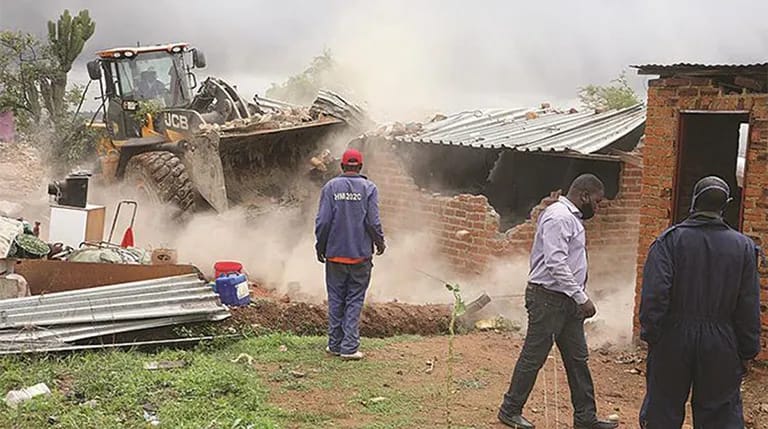Innocent Sibonginkosi Ncube
The High Court of Zimbabwe has recently halted home demolitions across the country, declaring certain provisions of the Regional, Town, and Country Planning Act unconstitutional. This ruling, made by Justice Never Katiyo on October 16, 2024, significantly impacts local authorities that have used the law to justify demolitions of informal housing without following due process.
Key Findings of the Ruling
The court found that Sections 32(2)(c) and (d) and Section 37(1)(a)(i) of the Act violate the constitutional right to protection from arbitrary eviction. As a result, local authorities are now required to obtain court orders before proceeding with any demolitions. This ruling comes amid rising concerns about forced evictions, particularly in peri-urban areas where informal settlements have been growing.
Government Response and Context
The government has been given 12 months to amend the legislation to ensure it aligns with constitutional protections. This decision is particularly relevant given the historical context of politically motivated land allocations in Zimbabwe, where powerful individuals, referred to as land barons, have sold unapproved land, often leading to conflicts and inadequate basic services in many areas.
President Emmerson Mnangagwa has previously stated that settlements established before 2021 would be regularized, while those established afterward would face demolition. He has emphasized the need for lawfulness and has criticized local councils for allowing settlements in disaster-prone areas.
Implications for Residents
The court’s ruling emphasizes the need for legal reforms and due process, which could provide long-term solutions for residents facing eviction. However, the ongoing influence of politically connected land barons remains a significant concern, especially as illegal constructions continue to proliferate in sensitive areas. The situation highlights the complexities of land management and housing rights in Zimbabwe, particularly in the context of upcoming elections and the associated pressures on local governNews.
Zim GBC News*©2024


